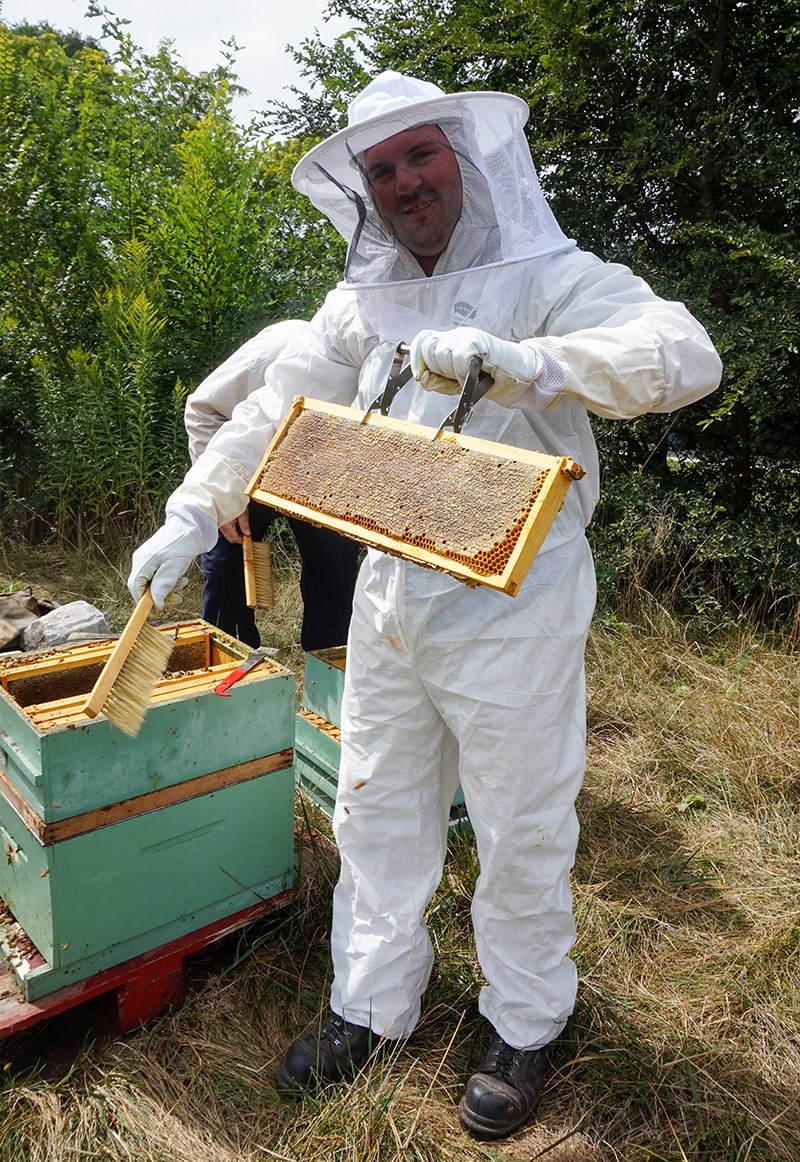Jake Romphf
The Sarnia Golf and Curling Club has added bees to the course’s more familiar birdies and bogies.
In partnership with Operation Pollinator, the Sarnia club has set up half a dozen beehives in a bid to support the busy pollinators, which play an important role in nature and agriculture.
Some of the honey the bees produce is sold in jars to members and the rest is used by a craft brewery to make club’s own brand of beer.
“Look at all your crops, look at everything … you need the honeybees,” said superintendent Joel Henderson.
The course worked with a local beekeeper to establish three hives on the 137-acre property in 2017, and this year doubled that number.
The program honours former superintendent Paul Brown, who advocated establishing bees on the golf course and who died last year, said communications administrator Shannon Harris.
“It was something that he wanted and really fought for.”
The beehives are another way the club is moving toward greater environmental sustainability.
Fall leaves are now composted into new soil and dead trees are turned into charcuterie boards, tee-block markers and benches.
The course is “dew-dragged” every other day and sand added to greens and tee blocks to reduce moisture and the need for fungicides.
Fairway mowing has been cut in half, and it’s done in a pattern that takes less time and fuel.
“It’s being resourceful with those things you have,” Henderson said. “It’s going to benefit the golf club, it will look better, and it doesn’t really cost much.”
The new bees, which help pollinate the course’s flowers and trees, are interesting creatures that have an internal GPS so strong moving their hive even slightly would confuse them, he added.
Many of the not-for-profit club’s 700 members also enjoy the honey, which is used by Railway City Brewing in St. Thomas to produce a winter beer and a summer beer for the bar.
“You’re giving them something that was somewhat made from your golf course,” said Henderson.
